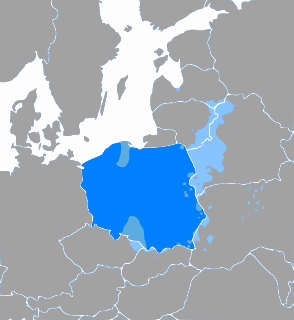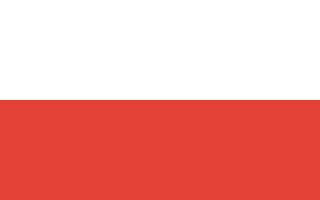
The Polish People's Republic was a communist satellite state in Central Europe that existed from 1947 to 1989, and the predecessor of the modern democratic Republic of Poland. With a population of approximately 37.9 million inhabitants near the end of its existence, it was the most populous state of the Eastern Bloc after the Soviet Union. Having a unitary Marxist–Leninist communist government imposed by the Soviet Union following World War II, it was also one of the main signatories of the Warsaw Pact. The largest city and official capital since 1947 was Warsaw, followed by industrial Łódź and cultural Kraków.

Żegota was the Polish Council to Aid Jews with the Government Delegation for Poland, an underground Polish resistance organization, and part of the Polish Underground State, active 1942–45 in German-occupied Poland. It was the successor to the Provisional Committee to Aid Jews.
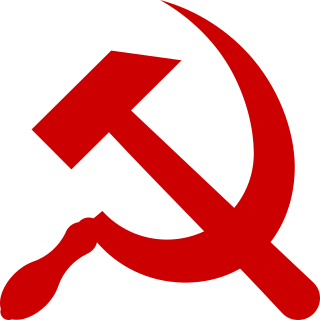
The Polish Workers' Party was a communist party in Poland from 1942 to 1948. It was founded as a reconstitution of the Communist Party of Poland and merged with the Polish Socialist Party in 1948 to form the Polish United Workers' Party. From the end of World War II the PPR ruled Poland, while the Soviet overall control and the communist system were being established in the country.
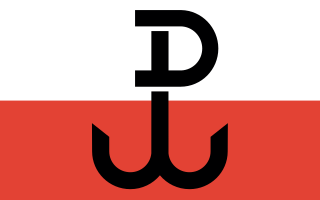
The Polish Underground State is a collective term for the underground resistance organizations in Poland during World War II, both military and civilian, that were loyal to the Government of the Republic of Poland in exile in London. The first elements of the Underground State were established in the final days of the German and Soviet invasion of Poland, in late September 1939. The Underground State was perceived by supporters as a legal continuation of the pre-war Republic of Poland that waged an armed struggle against the country's occupying powers: Nazi Germany and the Soviet Union. The Underground State encompassed not only military resistance, one of the largest in the world, but also civilian structures, such as education, culture and social services.
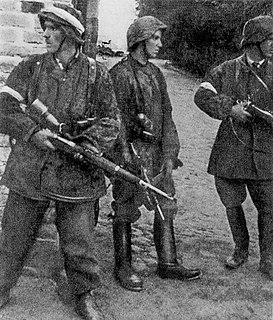
The Government Delegation for Poland was an agency of the Polish Government in Exile during World War II. It was the highest authority of the Polish Secret State in occupied Poland. It was headed by the Government Delegate for Poland, a de facto deputy Polish Prime Minister.

Rada Jedności Narodowej was the quasi-parliament of the Polish Underground State during World War II. It was created by the Government Delegate on 9 January 1944.
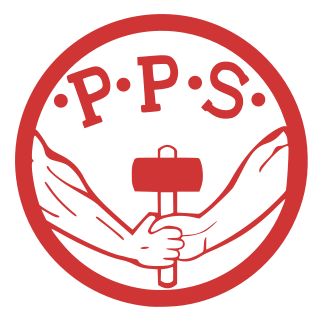
The Polish Socialist Party was a left-wing Polish political party. It was one of the most important parties in Poland from its inception in 1892 until its dissolution in 1948. A party with the same name was established in 1987 but has remained at the margins of Polish politics.

The Alliance of Democrats is a Polish centrist party. The party faced a revival in 2009, when it was joined by liberal politician Paweł Piskorski, formerly a member of Civic Platform.

The Polish Committee of National Liberation, also known as the Lublin Committee, was an executive governing authority established by the communists in Poland at the later stage of World War II. It was officially proclaimed on 22 July 1944 in Chełm, installed on 26 July in Lublin and placed formally under the direction of the State National Council. The PKWN was a provisional entity functioning in opposition to the Polish government-in-exile, the internationally recognized government of Poland. The PKWN exercised control over Polish territory retaken from Nazi Germany by the Soviet Red Army and the Polish People's Army. It was sponsored and controlled by the Soviet Union and dominated by Polish communists.
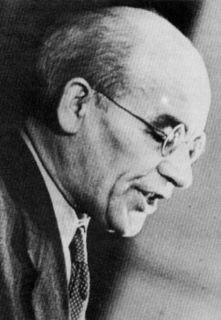
Krajowa Rada Narodowa in Polish was a parliament-like political body created during the later period of World War II in German-occupied Warsaw. It was intended as a communist-controlled center of authority, challenging organs of the mainstream Polish Underground State. The existence of the KRN was later accepted by the Soviet Union and the council became to a large extent subjugated and controlled by the Soviets.

The Ministry of Public Security of Poland was a postwar communist, secret police, intelligence and counter-espionage service operating from 1945 to 1954 under minister for Public Security general Stanisław Radkiewicz, and supervised by Jakub Berman of the Politburo. Its main goal was the eradication of the anti-communist structures and socio-political base of the underground Polish Secret State, as well as the persecution of former underground soldiers of the Polish Home Army and later anti-communist organizations like Freedom and Independence (WiN). In that capacity, MPB remained known mainly through its own regional offices called Urząd Bezpieczeństwa Publicznego or UBP ; and Urząd Bezpieczeństwa or simply UB.

Union of Polish Patriots was a political body created by Polish communists and Joseph Stalin in the Soviet Union in 1943. The ZPP, unofficially controlled and directed by Stalin, became one of the founding structures of the Soviet-controlled communist government that after World War II took power in the Polish People's Republic.

The history of Solidarity, a Polish non-governmental trade union, began on August 14, 1980, at the Lenin Shipyards at its founding by Lech Wałęsa and others. In the early 1980s, it became the first independent labor union in a Soviet-bloc country. Solidarity gave rise to a broad, non-violent, anti-communist social movement that, at its height, claimed some 9.4 million members. It is considered to have contributed greatly to the fall of communism.

The "cursed soldiers" or "indomitable soldiers" Polish: Żołnierze niezłomni) is a term applied to a variety of Polish anti-Soviet or anti-communist Polish resistance movements formed in the later stages of World War II and its aftermath by some members of the Polish Underground State. The clandestine organisations continued their armed struggle against the communist government of Poland well into the 1950s. The guerrilla warfare included an array of military attacks launched against the communist regime's prisons and state security offices, detention facilities for political prisoners and concentration camps that were set up across the country. Most of the Polish anti-communist groups ceased to exist in the late 1940s or 1950s, as they were hunted down by agents of the Ministry of Public Security and Soviet NKVD assassination squads. However, the last known 'cursed soldier', Józef Franczak, was killed in an ambush as late as 1963, almost 20 years after the Soviet take-over of Poland.

Stefan Korboński was a Polish agrarian politician, lawyer, journalist and a notable member of the wartime authorities of the Polish Secret State. Among others, he was the last person to hold the post of Government Delegate for Poland. Arrested by the NKVD in 1945, he was released soon afterwards only to be forced into exile. He settled in the United States, where he remained active among the local Polish diaspora. An active journalist, he was among the few people whose names were completely banned by the communist censorship in Poland.

Ryszard Reiff was a Polish politician, lawyer, publicist and resistance fighter. He was a deputy to the Polish parliament (Sejm) during the 1968 Polish political crisis and again during the Martial law in Poland.

Czesław Wycech (1899–1977) was a Polish activist, politician and historian. He was a member of the Polish peasant's parties: the Polish People's Party "Wyzwolenie", the People's Party, the Polish People's Party, and the United People's Party. During World War II he was a member of the Polish Underground State, responsible for organizing underground education. He was the Minister of Education in the Council of National Unity (1945–1947). Within the People's Republic of Poland, he was a member of the Polish parliament (Sejm) and also held other governmental posts.
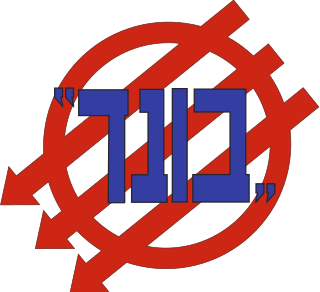
The General Jewish Labour Bund in Poland was a Jewish socialist party in Poland which promoted the political, cultural and social autonomy of Jewish workers, sought to combat antisemitism and was generally opposed to Zionism.
Stronnictwo Pracy was a Polish Christian democratic political party, active from 1937 in the Second Polish Republic and later part of the Polish government in exile. Its founders and main activists were Wojciech Korfanty and Karol Popiel.
The Polish People's Party, existed in post-World War II Poland from 1945 to 1949. In the period of increasing solidification of communist power, but still some formal adherence to multiparty democracy principles, the PSL was a centrist party, non-communist and not allied with the communists. The PSL was defeated by the communist-led bloc in the rigged legislative elections of 1947.
